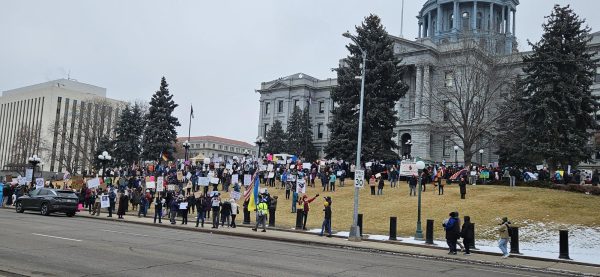Catalonia: A Bid for Freedom, But at What Cost?
BARCELONA — Spain is currently facing its worst constitutional crisis since the restoration of democracy in 1977. The Iberian country was thrown into turmoil after an unlawful referendum took place in the semi-autonomous region of Catalonia earlier this month, in which part of its population overwhelmingly voted for independence.
In an attempt to reign in the unruly enclave, Spain’s prime minister, Mariano Rajoy announced on Saturday that he planned to invoke Article 155 of the constitution, effectively revoking Catalonia’s autonomy, and imposing direct rule from Madrid.
“It was not our wish or intention. It never was,” Rajoy said. “But no democratic government can allow the law to be violated.”
Fearing the rise of other separatist movements, most notably from the Basque Country, Spain sees itself left with little option but to clamp down on Catalonia.
The prime minister’s announcement sparked massive protests on Saturday, with hundreds of thousands of people taking to the streets of Barcelona, shocked at Madrid’s drastic measures.

In a televised address, the head of the Catalonian Government, President Carlos Puigdemont, described Prime Minister Rajoy’s steps as the ‘worst attack against the institutions and the people of Catalonia since the military dictatorship of Francisco Franco.”
Although Puigdemont’s government was quick to proclaim a dramatic affirmation for independence, only 43% of Catalonians actually turned out to vote for the referendum, leaving no clear evidence that secession commands a majority in the region.
With both leaders at loggerheads, there seems to be no easing of tensions between Barcelona and Madrid.
Catalonia, a prosperous region in north-east Spain, with Barcelona as its capital, is administered by its own parliament and speaks its own language—besides Castillo-Spanish. It is twice the size of Rhode Island, with a population of 7.5 million.
The region joined the ‘Spanish Realm’ in 1462 when Isabel of Castille and Ferdinand of Aragon consummated their powers and land through matrimony, forging a formidable alliance. It was under this young couple’s reign (1469-1516) that Europe witnessed the inauguration of the New World, the Spanish inquisitions, and the dissolution of the last Moorish bastions in southern Europe.
Catalonia, known for its proud identity, and history of repression by Spain, has long harbored ambitions of secession. Although it enjoys broad self-government, many of its citizens want the region to be recognized as its own nation. It is the culminating years of rising discontent that has brought the current situation to a head.
But, culture and politics aside, many claim the main reason Catalonia wants to secede is economic. As one of the wealthiest and most productive regions in Spain, Catalonia contributes 20% of Spain’s taxes but only receive 14% back for public expenses.
According to economics professor Elizenda Paluzie, Catalonia is economically important for Spain, and if they were to secede, “[Spain] would lose territory that is relatively rich and that contributes a lot to taxes.”
Considered an economic powerhouse with a GDP of 266 billion euros (comparable to that of Denmark’s), some experts assert that Catalonia could easily become economically viable without Spain.
Many international firms have their European Headquarters located in the highly industrialized region, which due to its rugged mountains and splendid coastline, is also a prime holiday destination.
Still, analysts warn it could hurt Catalonians greatly if they do what suits them in the heat of the passing moment, without much consideration to their fellow Spanish citizens.
According to industry experts, tourism in the region has slumped by 15% since the controversial Referendum on independence earlier this month. Hotels are witnessing a drop in reservations as a result of conferences being canceled, and restaurant owners are suffering a considerable downturn.
“Over the past two weeks bookings have been down 30-40% and people have been canceling right through to January,” one restaurant owner said. “We employ 350 people and here in Barcelona what we’re facing is an economic tsunami.”
The dispute has even touched Spain’s sacred pastime, soccer.
“Barcelona won’t leave Spain (La Liga) regardless of the Catalonia situation,” reassured Barcelona FC president Josep Maria Bartomeu on Saturday, allaying fears that the crowd-pleasing soccer club, with more than 150 million fans world-wide, might have to relocate.

Spanish Prime Minister Rajoy is now poised to request the national Senate’s backing next week, to anoint him with unprecedented powers allowing him to dissolve the Catalan parliament and call for an early election.







